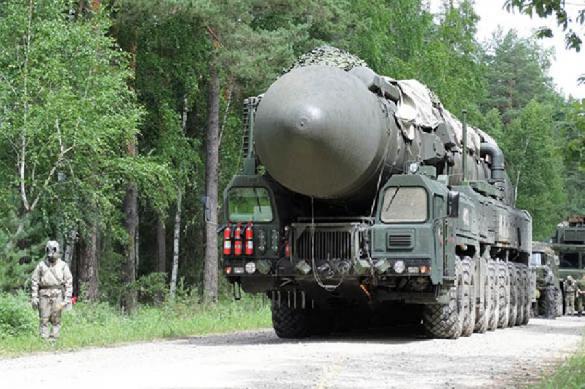President Vladimir Putin signed a decree approving the foundations of Russia's state policy in the field of nuclear deterrence.

The document lists primary dangers and military threats to Russia:
- potential enemy military build-up on the territories adjacent to Russia, which include means for delivering nuclear weapons;
- the deployment of ballistic missiles and hypersonic weapons by the countries, which consider Russia a potential adversary
- creation and deployment of anti-ballistic missile defense systems and strike systems in space;
- availability of nuclear weapons or other types of weapons of mass destruction that can be used against Russia and its allies;
- uncontrolled proliferation of nuclear weapons, delivery vehicles and equipment for their manufacture;
- deployment of nuclear weapons on the territories of non-nuclear states.
The document states that Russia's state-run policy in the field of nuclear deterrence is defensive in its nature.
Russia can use nuclear weapons if such weapons or other weapons of mass destruction are used against Russia and its allies, in the event that enemy attacks state facilities of critical and military significance, as well as in the event of non-nuclear aggression against Russia, which jeopardize the existence of the state.
The previous edition of the foundations of the state-run policy in the field of nuclear deterrence was approved in 2010 by then-president Dmitry Medvedev, who then served as president of the country. The document was valid until 2020. Medvedev had also approved the Military Doctrine of Russia.
Russia currently follows the Military Doctrine, approved by Putin in 2014. This document says that Russia can use nuclear weapons "in response to the use of nuclear and other types of weapons of mass destruction against Russia and (or) its allies." This also applies to aggression with the use of conventional weapons if "the very existence of the state is jeopardized."
The main external dangers, according to Russia's Military Doctrine, are the following:
- NATO's military build-up and bringing the military infrastructure of NATO members closer to Russia's borders;
- undermining global and regional stability;
- creation and deployment of missile defense systems that undermine global stability; intention to deploy weapons in space;
- territorial claims against Russia and allies, as well as interference in internal affairs of states.
No comments :
Post a Comment